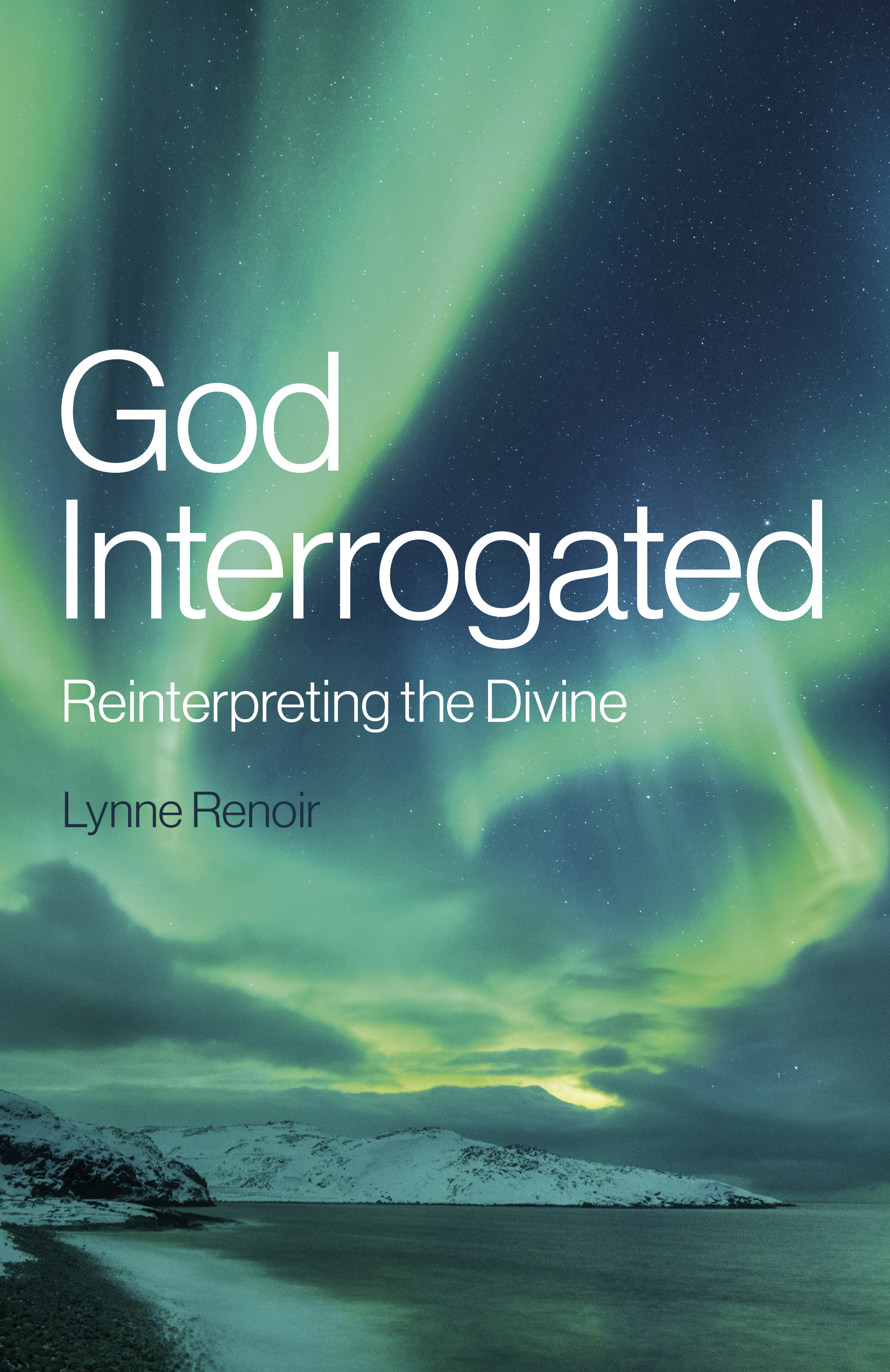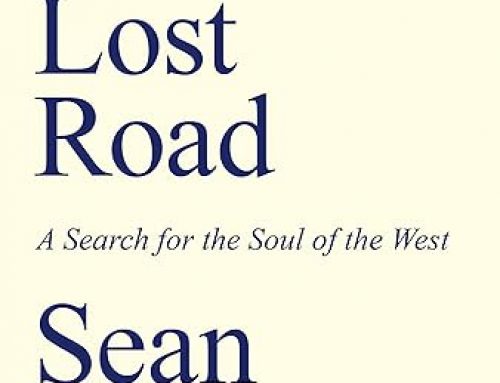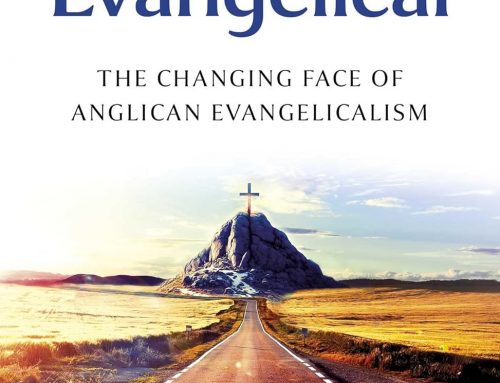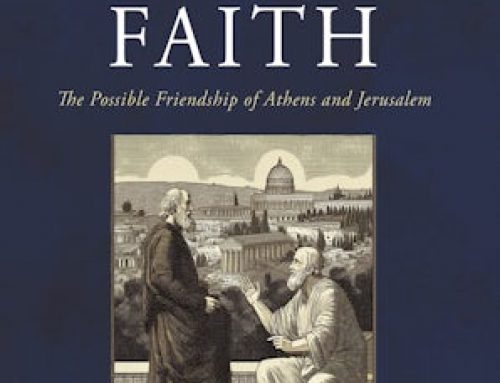REVIEW: God Interrogated – Reinterpreting the Divine
God Interrogated: Reinterpreting the Divine
by Lynne Renoir.
Publisher: Christian Alternative Books (31 Mar. 2023)
Language: English
Paperback: 209 pages
ISBN-10: 1803411724
ISBN-13: 978-1803411729
Book link: https://www.johnhuntpublishing.com/christian-alternative-books/our-books/god-interrogated
REVIEW by Rosalind Lund

Rosalind Lund is a trustee and a member of the Council of Modern Church,
and a lay member of the Church of England.
She has had a varied career as a journalist, editor and indexer
and spent 11 years as an office manager before retirement.
Lynne Renoir grew up in a deeply conservative Christian home and spent the first fifty years of her life deeply committed to the Christian Faith. However, despite believing that Christianity is true, she did not experience any sort of transformation, which she feels the scriptures describe as normative for the believer. Eventually, she came to feel that either her attempts to reach God, or allow God to reach her, were in some way defective. Lacking the sort of transformation which she sees as the necessary confirmation of belief, she now feels she must question the whole idea of an all-powerful God.
In keeping with her desire to question the existence of God, Lynne Renoir embarked on postgraduate degrees in psychology and philosophy and research into quantum theory. Her conclusions cover God and Philosophy, God and Science, and finally God and Belief. I am not sure that the author is actually interrogating God, but certainly she looks at the various strands of Philosophy which consider the concept of God and the effect of scientific knowledge on Christian belief. She also looks at the mystics, including those from Jewish and Islamic traditions, together with well-known Christian mystics.
The book’s approach reminds me in some ways of Richard Dawkins and his crusade against Christianity and indeed against conservative religion in general. Dawkins too, only considers the most conservative, literalistic and illiberal and intolerant forms of faith. Renoir considers mysticism and ideas of a self-emptying god. But she does not feel comfortable with this. She needs, as perhaps Dawkins does, an all-powerful god who will provide a transformative experience for her. This God never shows himself to her and never speaks to her so she goes on a sort of pilgrimage to meet the great philosophers and scientists. They have a range of answers but sadly these do not answer her needs.
The tally of philosophers is exhaustive. Renoir toys with quantum physics, but does not make use of the writings of distinguished priest/scientists or even lay scientists who have retained their faith in God; John Polkinghorne for example. The book sadly lacks an index which makes it difficult to find all the thinkers, teachers and scientists Renoir mentions – there are many.
I hoped that the last section of the book, “God and Belief”, might lead to a more academic and theological approach to the human understanding of God. What for example does Renoir make of the incarnation and of Jesus Christ whom Christians revere as God incarnate and who is recognised by Muslims at least as an important prophet and teacher? We are not told.
Renoir writes of transcendence and Paul’s list of the “fruits of the spirit” which she suggests “relate mainly to inner states rather than to specific behaviors or observances” (p.173). I rather take issue with this. It seems to me that Paul absolutely is talking about specific behaviours and qualities which mark out the Christian. If these qualities are absent, is the faith genuine?
It seems unlikely that Renoir has talked to members of faith communities who have followed a more liberal path than hers? This is a pity. She would have found open minds and hearts within liberal Jewish and Muslim groups as well as in inclusive and liberal Christian parishes.
When I was a teenager, I heard Billy Graham on television and learnt that he would be leading a mission at Earls Court. I was impressed by his preaching and felt it would be exciting to go and hear him. But I experienced something of Renoir’s disappointment when Graham called for believers to come forward. I didn’t feel any different about my faith, having been brought up in a Christian family. But I wanted this feeling so I went forward with others. Luckily for me, I realised that as a cradle Christian, no such conversion transformation was required – rather I was called to be as faithful as I could be even through the many times of doubt, and to discover as much as possible about the teachings of Jesus in order to follow him.
Fast forward two or three years and I went with my family to the annual conference of what was then known as the Modern Churchmen’s Union (now Modern Church). I found myself on a journey of discovery. I was excited to hear theologians and academic speakers on modern theology and biblical subjects, the arts, liturgy and much more. There was some experimental worship. I found a new community of friends.
The brief history of philosophers and their understanding of God in the first section of this book is useful. But I was somewhat bemused by Renoir’s concluding remarks where she talks of human perceptions and suggests that in future the idea of a ten-dimensional universe may become as accepted as that of our earth revolving round the sun, possibly leading to “a confluence of objective and subjective truth”. She suggests that “it is transformation that is the question of fundamental human concern” and our three-dimensional experience makes it hard to find personal fulfilment and experience transcendence (p. 179). To me the idea of the necessity of transformational experience for a religious life of faith and prayer seems excessively demanding. Lightbulb moments aren’t everyone’s thing. For some a quiet life of faith and prayer, trying to show the fruits of the spirit in their lives is enough. And of course, somehow having the sense that they are loved by a heavenly father/mother even when they fall short, is enough.
Easter 4, 2023





